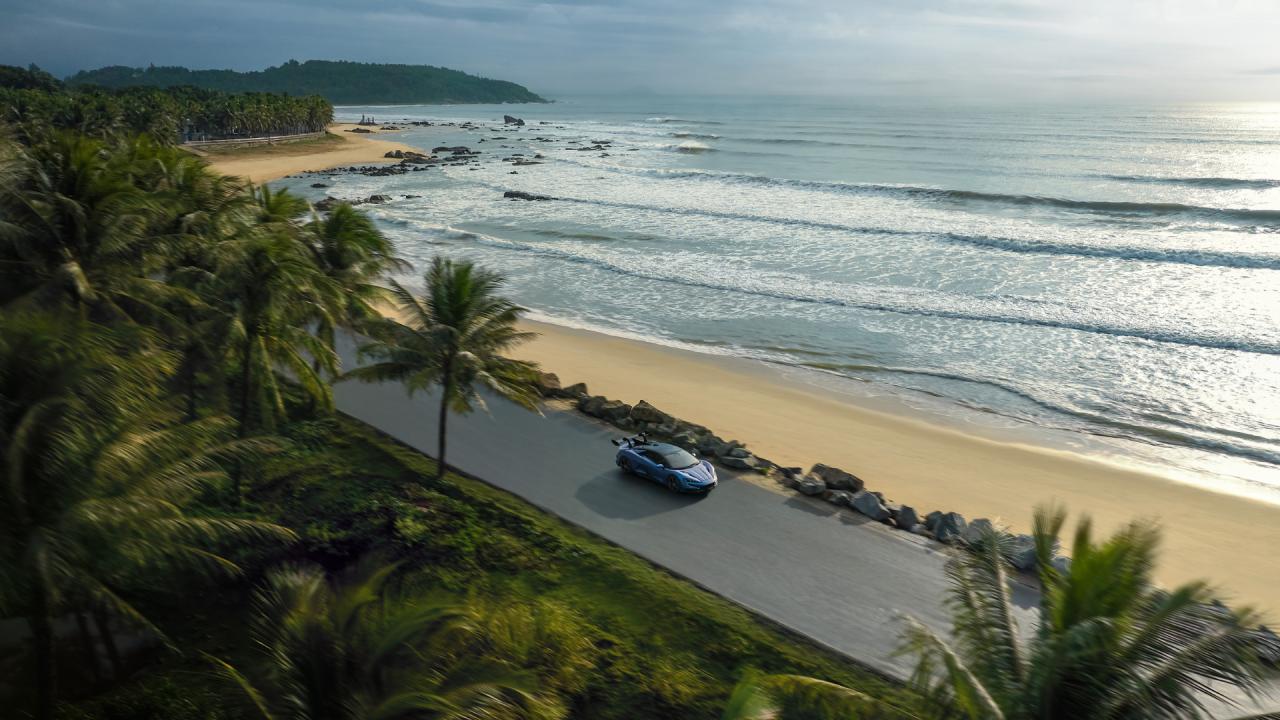This isn't just another incremental record. It’s a direct challenge to the established European hypercar elite. The battle for supremacy on the 20.832-kilometre circuit has a new king, and it’s not from Germany, Croatia, or Italy. This achievement proves that China's automotive ambitions are no longer just about volume and value; they are about absolute, world-beating performance.
The New Leaderboard: Dethroning the Elite
To understand the scale of this achievement, one must look at the giants the Yangwang U9 Xtreme has just surpassed. The new time of 6:59.157, set on August 22, 2025, by German racing driver Moritz Kranz, obliterates the previous production EV record.
That previous record, notably, was also held by a Chinese brand: the Xiaomi SU7 Ultra, which posted an impressive 7:04.957 earlier this year. Before Xiaomi, the crown belonged to Croatia’s Rimac Nevera (7:05.298), which itself had beaten the Porsche Taycan Turbo GT (7:07.55).
In a matter of months, two different Chinese manufacturers have leapfrogged Europe's finest. The Yangwang's time isn't just a few tenths faster; it's over five full seconds clear of its closest rival—an eternity in Nürburgring terms.
A Statement of Technological Supremacy
For automakers, a Nürburgring record is the ultimate marketing tool and a definitive proof of engineering prowess. Conquering the 'Ring demands a perfect harmony of power, chassis dynamics, aerodynamics, and, for an EV, extreme battery and thermal management.
While European consumers are getting used to seeing new Chinese brands like Geely and BYD competing in the family SUV market, this record is a so-called "halo effect" in its most brutal form. The message from BYD to the legacy automakers is clear: "We can beat you on price in the mass market, and we can now beat you on performance in your own backyard."
This achievement comes just one month after the very same Yangwang U9 Xtreme set another world record: the fastest top speed for a production car, clocking an astonishing 496.22 km/h (308.4 mph) at Germany's ATP Papenburg test track. It now holds two of the most coveted records in the automotive world.
The DiSus-X active suspension was critical in managing the Nürburgring's demanding surface.
The 3,000-HP 'Xtreme' Machine
So, what is this record-breaking beast? The Yangwang U9 Xtreme is a limited-edition (reportedly just 30 units) track-focused version of the standard U9 hypercar. While the "base" U9 already has staggering specs with around 1,300 horsepower, the Xtreme is in another dimension entirely.
Key specifications of the record-setting U9 Xtreme include:
- Power: A combined output of over 3,000 horsepower (PS) from four independent electric motors.
- Platform: The world's first mass-produced 1200V ultra-high-voltage platform, allowing for extreme power delivery and (reportedly) ultra-fast charging.
- Suspension: The advanced DiSus-X intelligent body control system. This unique hydraulic and air-based system actively controls the car's every move, countering body roll in corners, and managing pitch and dive under braking and acceleration. On the 'Ring's bumpy, high-g-load surface, this system is a decisive advantage.
- Driver: The car was piloted by Moritz Kranz, a German GT racing veteran with nearly 10,000 laps of Nordschleife experience, adding undisputed expertise and credibility to the attempt.
In his reflection on the lap, Kranz credited the BYD and Yangwang development teams, stating, "Without their intense work to balance a high-powered EV platform with the difficult demands of the chassis set-up, this great lap time would not have been possible."
The old narratives of Chinese cars as mere copies are definitively over. The automotive map has been redrawn, and European giants now have a new, extremely capable and ambitious rival at the very pinnacle of performance.

